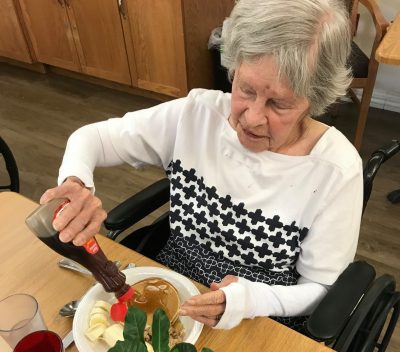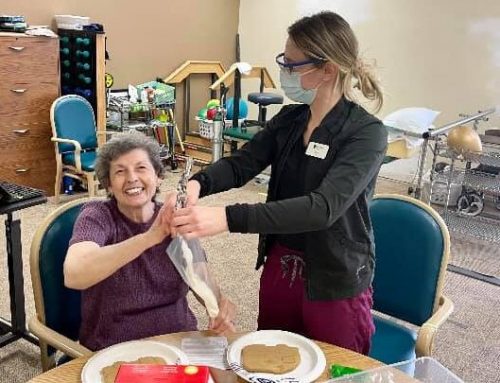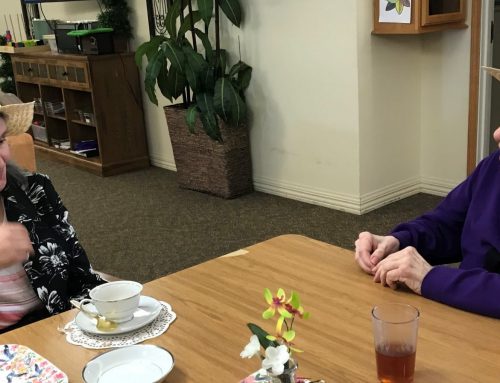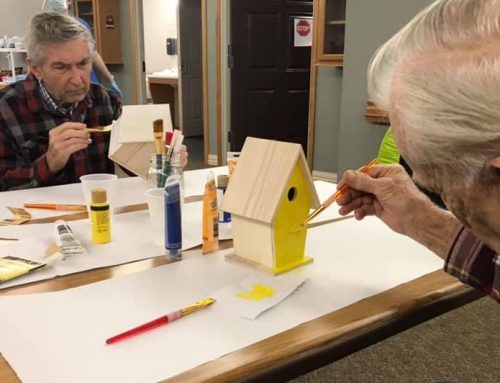Your loved one’s schedule has probably changed a lot with the new reality of COVID-19. While we would like to return to our usual routines once this is all over, for now, maintaining a schedule as best as possible is crucial during this difficult time.
This can be especially important when your loved one is receiving in-home care, living in a long-term care community, or suffering from memory issues. Sometimes this means a good deal of reorganization or even a brand new plan. It also may be best to keep parts of this new routine once pandemic precautions have been lifted, so it is essential to put a little bit of thought into it.
Any Schedule is a Good One…
 Schedules and routines are essential for all seniors, but they are especially important for those with memory loss. Life is very hectic at the moment, and that can make it tough to stay on track. It is so important to focus on your loved one’s day-to-day and weekly activities as it can:
Schedules and routines are essential for all seniors, but they are especially important for those with memory loss. Life is very hectic at the moment, and that can make it tough to stay on track. It is so important to focus on your loved one’s day-to-day and weekly activities as it can:
- Significantly reduce unhealthy stress and tension.
- Improve memory and mitigate the effects of Alzheimer’s and dementia.
- Ensure consistency of healthy and beneficial habits, as well as safety, calm, and mental health.
- Help you manage your life and reduce your own stress around caregiving.
If you are having trouble motivating yourself to help your loved one organize and keep their routines (which is totally fine!), remember that you will also be doing yourself a favor if you assist them. A lot of folks have trouble organizing their own agenda, and it’s reasonable to have an extra level of stress around this as well.
With that said, here are some tips to get you started:
- First of all, be sure to provide enough help when reworking their schedule. It is essential that you assist in adjusting and then sticking to the new plan.
- Keep it simple and help them prioritize. Identify what needs to be done and what must wait until after the COVID-19 precautions are lifted.
- Be realistic about their time, your time, and everyone’s time management ability. Assess what must be done, and don’t overwhelm your loved one or yourself by being too ambitious.
- Write it Down! Don’t forget to write it down in a way that is easy to read and easy to find.
- Check-in with your loved one and make sure they are continuing their routine. Ask if there is anything you can do to help. Whatever you do, it is important to keep as close to the new schedule as possible!
So, What To Do?
 When building your schedule, be sure to customize it to fit your loved one’s abilities, and don’t make things too complicated. Make sure to include essential daily and weekly activities:
When building your schedule, be sure to customize it to fit your loved one’s abilities, and don’t make things too complicated. Make sure to include essential daily and weekly activities:
- Cleaning and organizing their home or apartment.
- Bathing and personal care, as well as other daily hygiene activities.
- Writing down reminders to prepare, cook, and eat meals. This is particularly important if your loved one has memory issues. If they struggle with this, help them figure out how and when they will get assistance.
- Planning daily medication and the times to order and pick up or receive refills.
- Exercising daily! Help them make a commitment and stick to it. This one is difficult. Think about how and when physical activity fits into their day. Don’t impose any unnecessary challenges or barriers.
The activities they usually like to do may not be available. If you are struggling to find ways to fill a day, pick simple things to build a routine around:
- Morning breakfast and other meals.
- Easier exercises around the house, such as walking or lifting soup cans.
- Daily calls or video chats with friends and family. Try spacing out your calls. Folks with dementia may require more processing time. Having one person on the call at a time can help them to connect more quickly and not want to look away or hang up the call.
Remember that communication is key. You need to be consistent and engage with your loved one as much as possible:
- Talk with them and help them prepare. Work together to figure out how new activities and chores fit into this routine.
- A schedule only works if you keep it. Check in with them to make sure they are sticking to their routine.
Know that you will have to adapt. Any plan needs the flexibility to make changes, and this is even more true now. Accepting that there will be wrinkles and that nothing will truly go as planned allows you to roll with things a little easier.
It is important to remember that you might have to do a little bit more. These times require everyone to work harder and change up what they are doing. You may have to step up and involve yourself in becoming a part of their routine.
It’s A Team Effort!
 Readjusting and maintaining your loved one’s schedule requires a little teamwork. Remember to be patient, realistic, and supportive. Adjusting any part of your life can be difficult. As you get older, this becomes more strenuous, and if your loved one suffers from memory issues, this can be extremely challenging. Working together is always the best way to approach care, but it is currently an especially essential ingredient.
Readjusting and maintaining your loved one’s schedule requires a little teamwork. Remember to be patient, realistic, and supportive. Adjusting any part of your life can be difficult. As you get older, this becomes more strenuous, and if your loved one suffers from memory issues, this can be extremely challenging. Working together is always the best way to approach care, but it is currently an especially essential ingredient.
If you are having issues caring for your loved one or are looking for additional advice and guidance, simply reach out to us today. We are always here to help with the more personal and intricate aspects of care. Your loved one’s health and safety are our priorities, and we like to do all we can to help.






